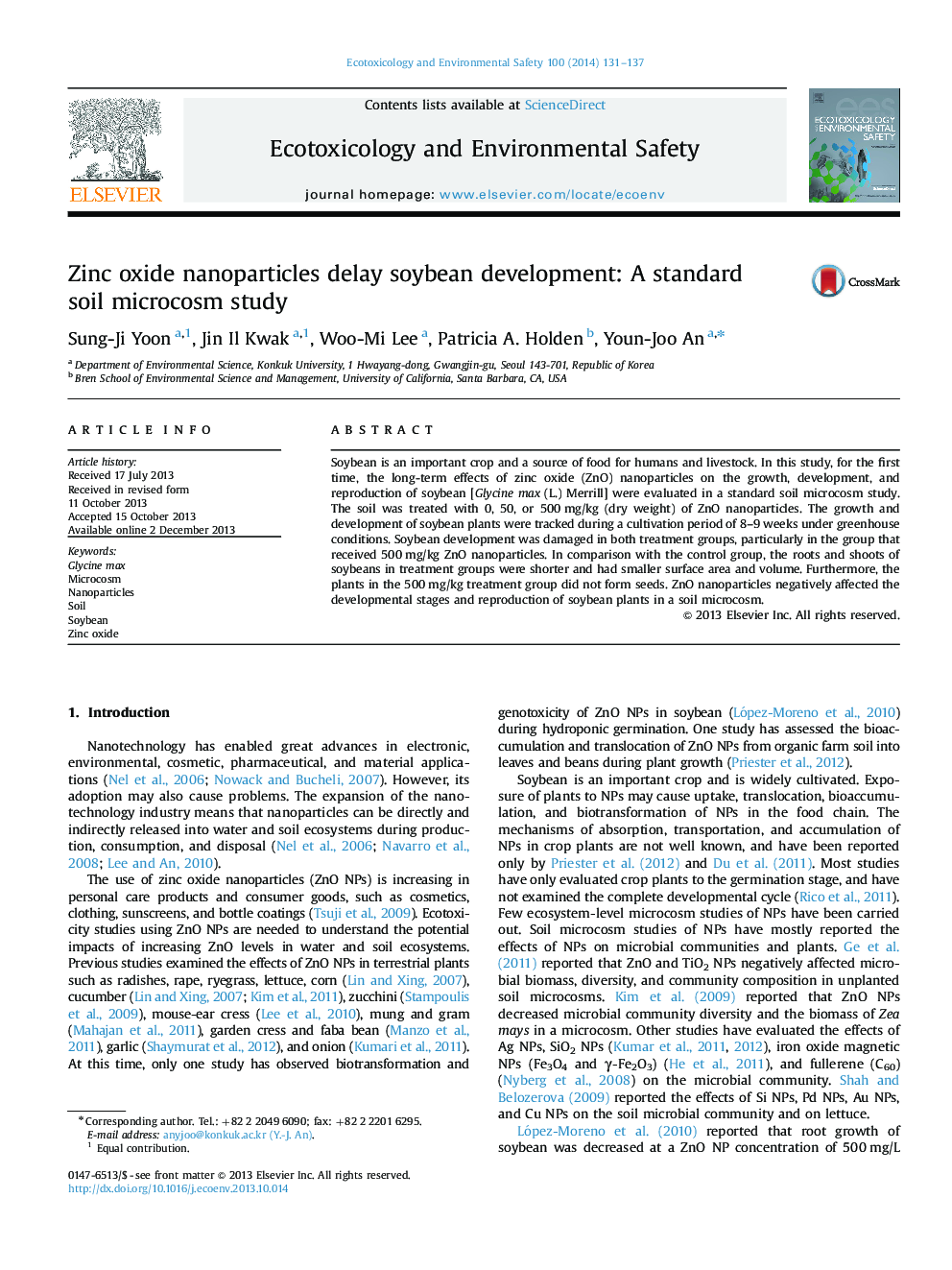| Article ID | Journal | Published Year | Pages | File Type |
|---|---|---|---|---|
| 6312225 | Ecotoxicology and Environmental Safety | 2014 | 7 Pages |
Abstract
Soybean is an important crop and a source of food for humans and livestock. In this study, for the first time, the long-term effects of zinc oxide (ZnO) nanoparticles on the growth, development, and reproduction of soybean [Glycine max (L.) Merrill] were evaluated in a standard soil microcosm study. The soil was treated with 0, 50, or 500Â mg/kg (dry weight) of ZnO nanoparticles. The growth and development of soybean plants were tracked during a cultivation period of 8-9 weeks under greenhouse conditions. Soybean development was damaged in both treatment groups, particularly in the group that received 500Â mg/kg ZnO nanoparticles. In comparison with the control group, the roots and shoots of soybeans in treatment groups were shorter and had smaller surface area and volume. Furthermore, the plants in the 500Â mg/kg treatment group did not form seeds. ZnO nanoparticles negatively affected the developmental stages and reproduction of soybean plants in a soil microcosm.
Related Topics
Life Sciences
Environmental Science
Environmental Chemistry
Authors
Sung-Ji Yoon, Jin Il Kwak, Woo-Mi Lee, Patricia A. Holden, Youn-Joo An,
